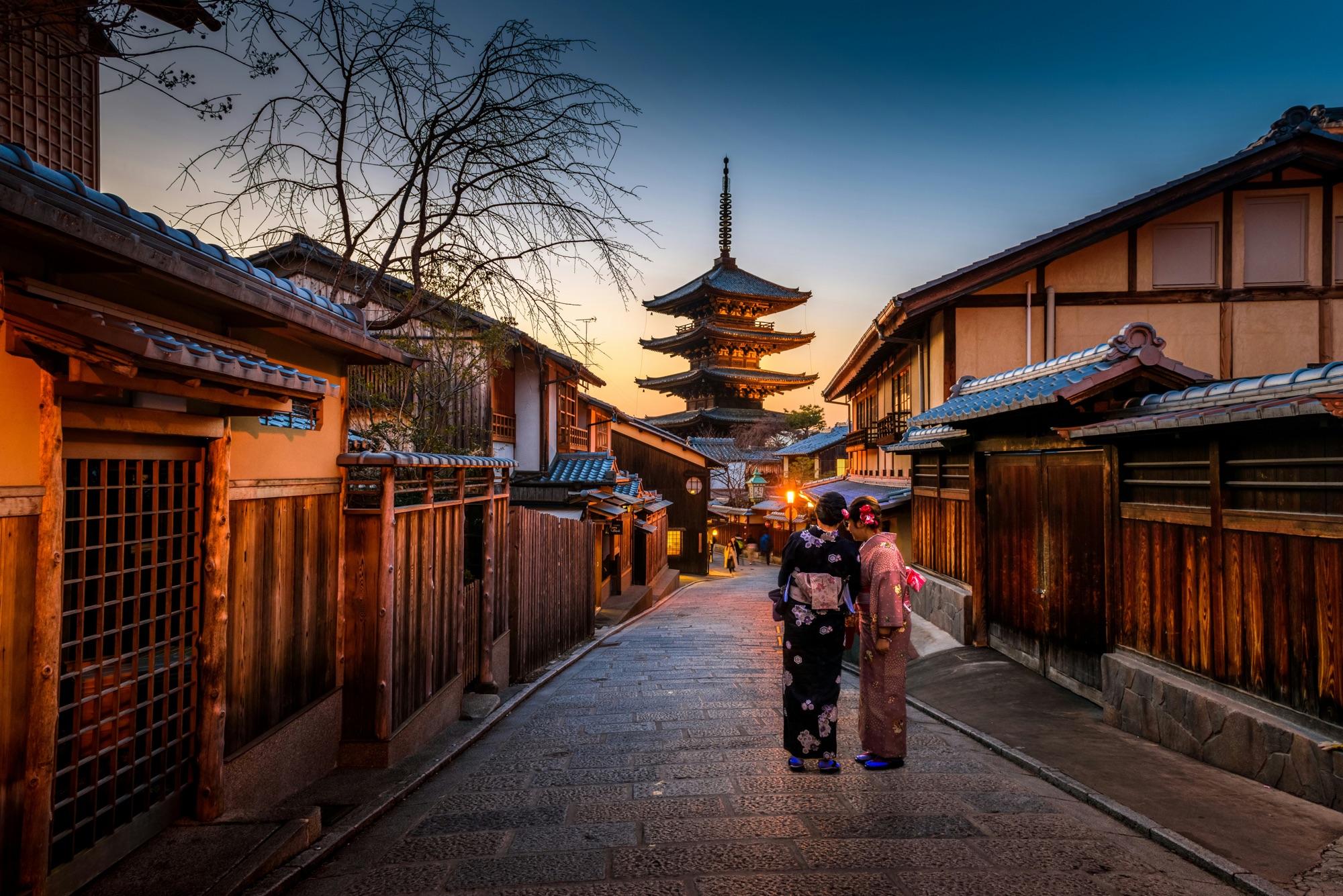Japan is a country known for its rich culture, deep traditions, and polite social norms. As a visitor, it’s important to be aware of cultural customs and social etiquette to show respect and avoid inadvertently offending locals. While Japan is a highly welcoming country, there are certain things tourists should avoid to ensure they make a positive impression.
Here are 15 things you should avoid doing while visiting Japan to ensure that your trip is enjoyable and respectful.
1. Talking Loudly in Public Spaces
Japan is known for its quiet public spaces, and maintaining a low voice in public areas such as trains, buses, and restaurants is considered polite. Speaking loudly or engaging in animated conversations, especially on public transportation, is frowned upon.
Why to Avoid:
- Respecting others’ personal space is highly valued in Japan.
- Public spaces, particularly trains, are often seen as places of quiet and reflection.
Tip:
- Keep conversations at a low volume, especially in confined spaces. If you must take a phone call, it’s better to step outside or find a private spot.
2. Tipping
Tipping is not a customary practice in Japan and can even be considered rude. Restaurant staff, taxi drivers, and hotel employees are paid adequately and don’t expect tips. In fact, leaving a tip may cause confusion or embarrassment for the recipient.
Why to Avoid:
- Tipping is not part of Japanese culture, and offering a tip can be seen as implying that the service wasn’t good enough.
Tip:
- If you want to show gratitude for exceptional service, a polite “arigatou gozaimasu” (thank you) or a small token gift is appreciated more than a tip.
3. Not Taking Off Your Shoes Indoors
In Japan, it is customary to remove your shoes when entering someone’s home, a traditional ryokan (inn), temples, and some restaurants. Wearing shoes indoors is considered unclean, as shoes are associated with the dirt and grime from outside.
Why to Avoid:
- Not taking off your shoes when entering a home or certain indoor areas is seen as disrespectful and unhygienic.
Tip:
- Look for a genkan (entryway) in homes or establishments where shoes should be removed. Slippers are often provided for indoor use.
4. Pointing at People or Objects
Pointing with your finger at people or objects is considered rude in Japan. This gesture can come across as aggressive or impolite, and it’s better to use other methods of indicating something.
Why to Avoid:
- Pointing can be seen as disrespectful and confrontational in Japanese culture.
Tip:
- Use your whole hand to gesture toward something or use a nod or small wave to indicate a person.
5. Not Respecting Queues
In Japan, queuing is an important part of daily life, and orderly lines are formed for everything from boarding trains to paying at a store. Jumping the queue or not following the proper line can upset others and is considered rude.
Why to Avoid:
- Japan values orderliness, and cutting the line is seen as inconsiderate.
Tip:
- Always wait your turn and follow queue markers, especially at train stations or convenience stores.
6. Being Late
Punctuality is highly valued in Japan, whether it’s for a business meeting, dinner reservation, or social engagement. Arriving late can be seen as a sign of disrespect for other people’s time.
Why to Avoid:
- Being late can be interpreted as inconsiderate and unprofessional.
Tip:
- Aim to arrive 5-10 minutes early for any meeting or appointment. If you’re running late, it’s polite to notify the person you’re meeting as soon as possible.
7. Blowing Your Nose in Public
In Japan, blowing your nose in public, especially in crowded areas, is considered impolite. Even if you have a cold or allergies, it’s better to excuse yourself to a restroom or find a more private space.
Why to Avoid:
- Blowing your nose loudly or openly in public is seen as bad manners and unhygienic.
Tip:
- Use tissues discreetly or step away to a private area to blow your nose if necessary.
8. Eating or Drinking While Walking
While Japan has a vibrant street food culture, eating or drinking while walking is generally frowned upon. Japanese people tend to eat in designated areas, such as benches or restaurant seating, to maintain cleanliness and avoid creating a mess in public.
Why to Avoid:
- Eating or drinking on the go can be seen as careless and is associated with littering.
Tip:
- If you buy food from a convenience store or street vendor, find a place to sit or stand while you eat.
9. Not Following Proper Bathing Etiquette
When visiting an onsen (hot spring) or sento (public bath), it’s important to be aware of the proper bathing etiquette. You must thoroughly wash and rinse your body before entering the communal baths to avoid contaminating the shared water. Wearing a swimsuit in these baths is also not allowed.
Why to Avoid:
- Not washing before entering an onsen or sento is seen as disrespectful and unhygienic.
Tip:
- Use the provided showers and soap to wash thoroughly before soaking in the hot springs. Enter the bath completely naked, as swimsuits are generally not permitted.
10. Not Following Trash Disposal Rules
Japan has very strict waste disposal and recycling rules, and public trash cans are scarce. Trash is often separated into categories like burnable, non-burnable, and recyclable, and failing to follow these rules can be seen as inconsiderate.
Why to Avoid:
- Japan is meticulous about waste disposal, and improper sorting of trash can upset locals.
Tip:
- Keep a small plastic bag with you for carrying trash until you find the appropriate disposal bin. Always follow the local trash guidelines.
11. Touching Someone’s Head
Touching someone’s head, even as a friendly gesture, is considered disrespectful in Japan, particularly because the head is seen as sacred or private in many cultures across Asia. Avoid patting or ruffling someone’s hair, even children.
Why to Avoid:
- Touching someone’s head without permission can be seen as invasive and inappropriate.
Tip:
- Show respect by avoiding physical contact with the head or hair of others.
12. Standing on the Wrong Side of the Escalator
In Japan, the escalator etiquette is to stand on one side and leave the other side free for people who want to walk. The standing side varies depending on the region: in Tokyo, you stand on the left, while in Osaka, you stand on the right.
Why to Avoid:
- Standing on the wrong side of the escalator blocks people who are in a hurry and disrupts the flow of traffic.
Tip:
- Follow the local custom by standing on the appropriate side and leaving the other side open for walkers.
13. Giving Direct, Unwrapped Gifts
In Japan, gift-giving is an important part of the culture, but it’s customary to wrap gifts beautifully and present them with both hands. Giving an unwrapped gift or being careless with the presentation can be seen as thoughtless or rude.
Why to Avoid:
- Unwrapped gifts are seen as disrespectful and show a lack of care in presentation.
Tip:
- Take care to wrap gifts neatly and present them respectfully with both hands.
14. Tattoos in Public Spaces (Onsen)
In Japan, tattoos have historically been associated with the yakuza (organized crime groups), and they can still carry negative connotations. Many onsen (hot springs), pools, and public baths do not allow individuals with visible tattoos to enter.
Why to Avoid:
- Displaying tattoos, especially in traditional areas like onsen, can lead to being denied entry.
Tip:
- If you have tattoos, consider covering them with bandages or seek out tattoo-friendly onsen, which are becoming more common.
15. Pointing Chopsticks
Chopsticks have their own set of etiquette rules in Japan. Pointing your chopsticks at someone, sticking them upright in a bowl of rice, or passing food from one set of chopsticks to another are considered rude and culturally inappropriate. Sticking chopsticks upright in rice is associated with funeral rites, and passing food with chopsticks resembles the way bones are passed at a cremation ceremony.
Why to Avoid:
- These actions are seen as disrespectful and invoke unpleasant cultural associations.
Tip:
- Rest your chopsticks on the provided chopstick rest when not in use, and avoid sticking them upright in food.
Conclusion: Respecting Japanese Etiquette
Japan is a country where manners and social norms are highly valued, and adhering to these customs is important for being a respectful and conscientious visitor. By avoiding these 15 common mistakes, you’ll not only enhance your travel experience but also leave a positive impression on the locals. Understanding and respecting Japanese etiquette allows you to immerse yourself more deeply in the culture and enjoy the unique charm of this fascinating country.




